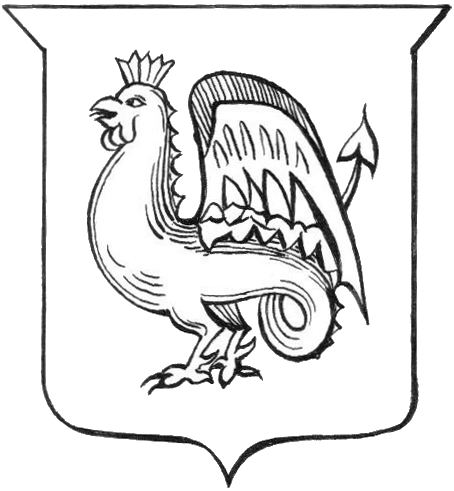A cockatrice is a two-legged dragon with a cock's head and, quite often, wings.

The first mention of a cockatrice in the English language was by Alexander Neckam in about 1180. He tells us that the cockatrice is born from a cock's egg hatched by a toad.
And who, after all, is to say that he's wrong.
Anyway, wherever they come from, cockatrices are tough cookies. The mere gaze of one is said to turn people to stone (though the old look-in-this-mirror trick has been used time and again to turn the stone-magic back on the cockatrice itself).
Unfortunately, the mirror-trick doesn't always work that easily. When a cockatrice was found in the dungeons of Wherwell Priory in Hampshire, a man called Green duly showed it a mirror. But instead of being turned to stone, the cockatrice was roused to a fury. It fought its reflection so mightily that (sadly, I think) Green was able to get close enough to kill it.
Ans more deadly even than a cockatrice's gaze is its breath. This is so poisonous that in the 800s a hiding cockatrice is said to have killed many of the people of Rome.
That one was killed by the prayers of Pope Leo VI.
The great expert on the cockatrice remains Edward Topsell, who wrote about them in 1608. He was no fool, was Mr Topsell, and not to be taken in by any old tale:
'I cannot without laughing remember the olde Wives tales of the Vulgar Cockatrices that have bin in England; for I have oftentimes heard it related confidently, that once our Nation was full of Cockatrices, and that a certaine man did destroy them by going uppe and downe in Glasse, whereby their owne shapes were reflected upon their owne faces, and so they dyed. But this fable is not worth refuting, for it is more likely that the man should first have dyed by the corruption of the ayre from the Cockatrice, then the Cockatrice to die by the reflection of his owne similitude from the glasse, except it can be shewed that the poysonous ayre could not enter the glasse wherein the man did breathe.'
Bur I don't want to leave you all in fear and trembling, and luckily there is one piece of good news: a cockatrice is only about thirty centimetres long.
So now we can all sleep at night.
Word To Use Today: cockatrice. This word comes from the Old French cockatris, from the Latin calcatrix, which means trampler or tracker, from calx, which means heel.
No comments:
Post a Comment
All comments are very welcome, but please make them suitable for The Word Den's family audience.